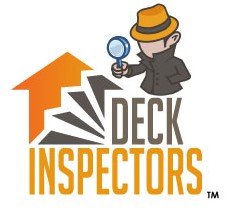Balconies, Budgets, and SB 721: The Financial Realities for Landlords

Owning rental properties in California means keeping up with more than just tenant leases and rent collection—it also involves navigating evolving safety regulations, such as SB 721. This landmark legislation mandates regular inspections of balconies and other exterior elevated elements (EEEs) in multifamily rental buildings. While the purpose of SB 721 is to prevent accidents and save lives, it also introduces financial obligations that landlords must be prepared for. Let’s break down the actual cost of compliance, the risks of non-compliance, and how landlords can build smarter budgets to stay ahead. The Real Costs of SB 721 SB 721 requires landlords of buildings with three or more rental units to have balconies, decks, stairways, catwalks, and other EEEs inspected by a qualified professional by January 1, 2025—and then every six years thereafter. Here are some typical costs landlords should anticipate: Initial Inspection: $500 to $1,500 per structure, depending on size and accessibility Repairs or Upgrades: Can range from $2,000 for minor fixes to $50,000+ for major structural repairs Permits & Fees: Varies by city or county jurisdiction Follow-Up Inspections: Required after repairs to confirm compliance While those numbers may feel overwhelming, the alternative—non-compliance—can be far more expensive. Property owners who fail to comply face fines up to $500 per day after a 30-day correction notice is issued. Worse, ignoring SB 721 could open landlords up to lawsuits and insurance complications in the event of a balcony failure. Budgeting Tips to Stay Ahead Rather than waiting for the deadline and scrambling to fund inspections and repairs, smart landlords are planning now. Here are some proven strategies: Conduct Early Inspections: Starting sooner gives you more time to secure quotes, schedule repairs, and avoid last-minute rush fees. Build a Reserve Fund: Just like setting aside money for roof or plumbing work, create a dedicated maintenance reserve for SB 721-related expenses. Bundle Properties: If you own multiple buildings, hire one inspector to assess them all. You may qualify for volume discounts. Phase Repairs: If significant work is required, break it down into phases to spread out the costs over several months or fiscal years. Finance Options: Ask your inspection company about payment plans or referrals to lenders who specialize in property improvement loans. Conclusion: Safety Is Worth the Investment SB 721 isn’t just another regulation—it’s a long-term safeguard for tenants and a financial protection for landlords. Proactively inspecting and maintaining your EEEs not only keeps you compliant but also increases the overall value and safety of your property. At Deck Inspectors of Southern California, we help landlords navigate the technical and financial aspects of SB 721 compliance with clear assessments, transparent pricing, and expert repair recommendations. Don’t wait until fines stack up—schedule your SB 721 inspection today and build your budget with confidence. Deck Inspectors for Southern California is happy to offer our services in Los Angeles County, Riverside County, Orange County as well as San Diego County and all Southern California surrounding areas like: Los Angeles, Irvine, Long Beach, La Jolla, Glendale, Pasadena, Santa Ana, Huntington Beach, Dana Point, Burbank, Santa Monica, Anaheim, Temecula, Encinitas, Chula Vista, Vista, Mesa, San Diego, Oceanside, Escondido, Carlsbad, Poway, Mission Viejo, and El Cajon.
